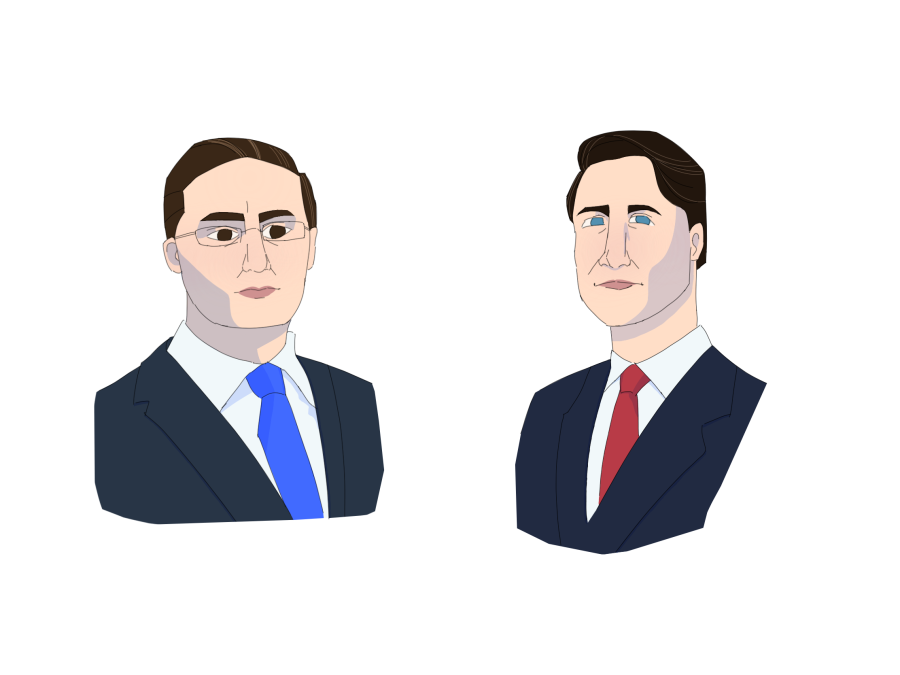As a Canadian, I often joke that 2015 was the year most Americans found out their neighbor to the North has its own independent political system. The 2015 election was one of the greatest political realignments in modern Canadian history, but instead, most Americans know that year as the one when we elected Justin Trudeau, our famously handsome Prime Minister.
I vividly remember 2015’s election night. The Conservatives had been in power for the past nine years, and during the previous election in 2011, the Liberals were decimated, retaining just 34 seats in Parliament out of 308 nationwide.
However, Trudeau effectively won over voters with a progressive, inclusive agenda, winning an astronomical 184 seats, enough to form a comfortable majority government for the next term. And the mood during his victory speech couldn’t have been more hopeful, multicultural and progressive.
Cue the rainbows. Cue the unicorns. Cue the confetti.
But I’m afraid that’s where the majority of Americans’ knowledge about Canadian politics ends: that we elected Trudeau, riding on a hippy, progressive, inclusive wave, who passed countless liberal policies such as increasing immigration, legalizing marijuana and setting new goals for carbon neutrality.
But that’s hardly the case. Seven years into his premiership, the cracks in this progressive foundation are becoming painfully clear, with the Liberals regularly polling 3-5 points behind the Conservatives. As a Canadian, it’s become evident to me that the Democrats in the U.S. are heading down the same path as the Canadian Liberals: the same path that might bring the era of Justin Trudeau to an end in the next federal election.
So what path am I referring to? An excessive focus on so-called “wokeness,” progressiveness and minority rights. Let me explain.
Despite the rainbows, unicorns and confetti, Trudeau’s political honeymoon slowly faded. Opposition to his policies grew from a group of fringe voters – dismissed as racist, misogynistic and unfitting for modern Canada – into a national movement representing an entire generation of those left behind by progressivism. This was made especially evident by the Convoy Protests this past year, where individuals dissatisfied with the Liberal government blockaded the streets of the Canadian capital Ottawa with hundreds of trucks, blaring their horns and blowing toxic amounts of smog into the air.
Furthermore, the painful visual juxtaposition between the protestors, overwhelmingly white, rural and male, and the multicultural, wealthy citizens of Ottawa couldn’t have better illustrated the tensions at play.
Most of all, it was the Convoy protests that directly propelled the new Leader of the Opposition, Conservative Party leader Pierre Polievre, into the national spotlight. During the protests, he was one of the few federal politicians to openly encourage the Convoy and its movement. And it was largely the demographics that made up the protestors that elected him to the Conservative Party leadership.
Thus far, he’s expressed his disdain for the Bank of Canada (the Canadian equivalent to the Federal Reserve), fervently supported the abolition of vaccine mandates and even expressed his desire to never send a Canadian delegation to the World Economic Forum again, implicitly endorsing a conspiracy theory that the WEF is run by a dystopian New World Order. Guess which demographic is most likely to support that theory.
Many commentators equate Trump and Poilievre, but they are by no means the same. But the similarity they do share is the demographics of their base: overwhelmingly rural, white men who have been largely shunned by the liberal policies of Obama and Trudeau respectively.
The left wing often too easily laughs off these right-wing reactionaries, but as Trump’s election in 2016 clearly showed us, politicians can still win big with their appeal to this demographic.
While Poilievre’s supporters are more diverse than Trump’s, which can partially explain his higher polling numbers proportionally, it can’t be denied that rural white men comprise a major part of his political base.
What many individuals on the left fail to understand is that every decision we make is inherently a trade-off, and therefore when one group benefits, another must be inherently harmed. The unfortunate truth is that left-wing leaders are largely neglecting the consequences of their progressivism.
So call supporters of Trump and Poilievre racist, misogynist and unfit for the modern world, but racist, misogynist white men still command significant political power in our democracy. And as Trump’s election made clear, politicians can still win big with their appeal to this demographic. Unless the left finds a way to incorporate them into their progressivism, our politics will continue to polarize, and the U.S. and Canada will continue to become breeding grounds for right-wing reactionaries.

